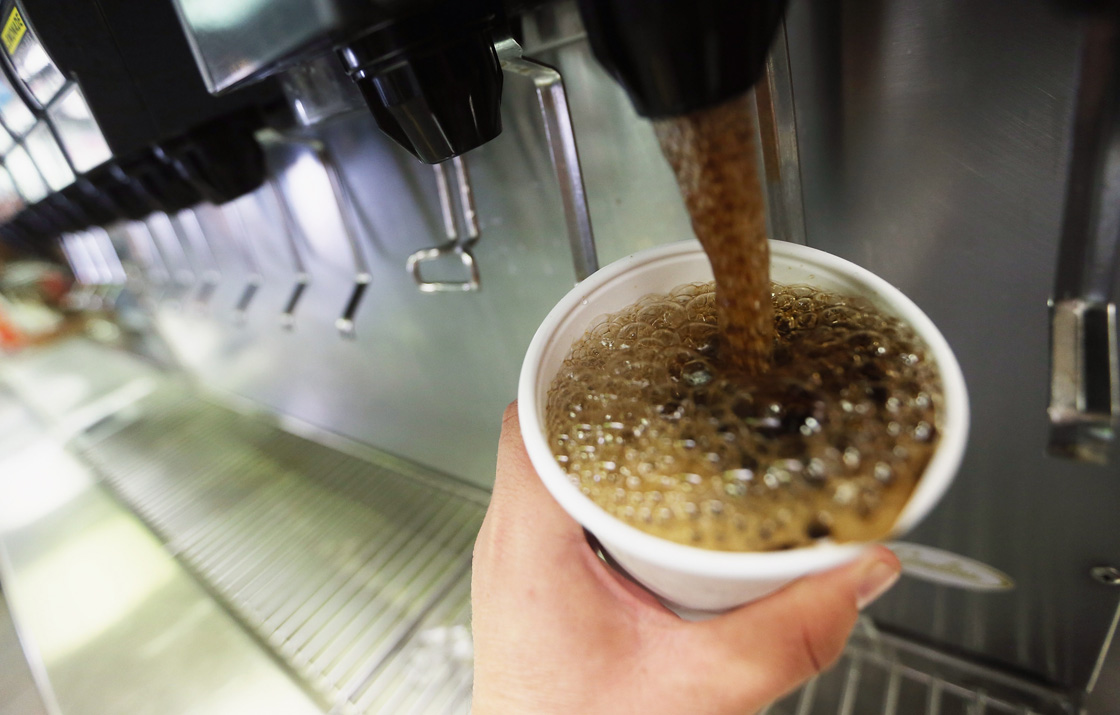TORONTO – Some consumers think they’re taking the healthy route when they reach for a diet soda or opt for a packet of Splenda to stir into their morning coffee.

But American researchers raised some warnings last week in a study that suggested artificial sweeteners could be playing tricks on the body’s insulin response – a concern that could lead to diabetes.
And along came the reports: “Could artificial sweetener cause diabetes? Splenda ‘modifies the way body handles sugar,’” one British article said. “Splenda may increase blood sugar spikes and insulin levels,” another warned.
The study adds to growing evidence against artificial sweeteners in syrupy drinks, in low-calorie snacks and in sugar- and fat-free treats and may have Canadians second-guessing what’s in their shopping cart.
Read more: Quarter of heart attack patients weren’t tested for diabetes or high cholesterol
Global News looks at the study’s findings and the Canadian verdict on sucralose, aspartame and other sugar substitutes.
The study’s findings:
To consider how Splenda affects the body, Washington University School of Medicine researchers worked with 17 “severely obese” people. None of the patients had diabetes.
The subjects had a body mass index of just over 42 – keep in mind, a person is considered obese when their BMI reaches 30.
The researchers then handed the 17 people a glass of water or a glass of dissolved sucralose – about the size of a 12-ounce diet soda – to drink. Then, they had 75 grams of glucose (sugar) to mimic eating a snack with the drinks.

Get weekly health news
A week later, the subjects took the test again but the second time, they were handed whichever drink they didn’t have in the first trial. So if they had water the first time, they were given the sucralose second.
Results showed that just 90 minutes later, the participants who drank the sucralose had insulin concentrations that were 20 per cent higher than those who drank water. Their blood sugar levels even peaked at higher levels than those who drank water only.
Read more: Rates of diabetes have jumped 15-fold for Chinese Canadians: study
For some reason, the artificial sweetener seemed to take a toll on the body’s insulin levels more so than water. These aggressive sugar rushes could cause insulin insensitivity as the body’s pancreas will compensate by producing more insulin. If the pattern continues, some people could be on the road to diabetes, the study suggests.
Sound bite: “Our results indicate that this artificial sweetener is not inert – it does have an effect,” study researcher Dr. M. Yanina Pepino said in a statement. Her complete findings were published in the journal Diabetes Care.
“When study participants drank sucralose, their blood sugar peaked at a higher level than when they drank only water before consuming glucose.”
The counter-argument:
In response to the study, Splenda noted that many consumers with Type 1 and Type 2 diabetes, along with non-diabetics, turn to artificial sweeteners without any issues. The statement said that the product doesn’t tamper with blood glucose levels or insulin and that there’s been scientific evidence to support this.
Sound bite: “FDA and other important safety and regulatory agencies from around the world have concluded that sucralose does not adversely affect glucose control, including in people with diabetes. Experts from around the world have found that Splenda Brand Sweetener is suitable for everyone, including those with diabetes,” Splenda said in a statement to the Daily Mail in the United Kingdom.
Canadian experts weigh in:
Dr. Rena Mendelson, a nutrition professor at Ryerson University with more than 40 years of experience in the field, says that consumers need to consider what they’re eating. In the study, for example, overweight subjects were included in the testing.
“We know that if you look at who uses artificial sweeteners, they tend to be people who are overweight or obese and we always assume it’s because they’re trying to lose weight so they use artificial sweeteners,” she explained.
“This would suggest it would make it harder for them to lose weight. It depends on whether they’re truly in touch with their appetite and attentive to their intake,” she said.
Canadians need to examine if they’re drinking zero-calorie, artificially sweetened drinks and eating extra calories to compensate – that could be a dangerous habit.
Read more: Canadian scientists to test new diabetes treatment
Mendelson commended the study for having “good controls” and an “interesting outcome.” It’s just unclear what the implications are.
She tells readers that drinks that are sweetened artificially may not be a safer bet than the real deal.
“I say drink water. I do not recommend artificially sweetened drinks.”
In an email to Global News, the Canadian Diabetes Association says that when “used in moderation,” sugar substitutes are fair game in healthy eating.
Health Canada has set daily intake recommendations. A can of diet soda, for example, has about 200 milligrams of aspartame, or 12 milligrams of sucralose – both have been shown to be safe for those with diabetes.
carmen.chai@globalnews.ca
Follow @Carmen_Chai








Comments